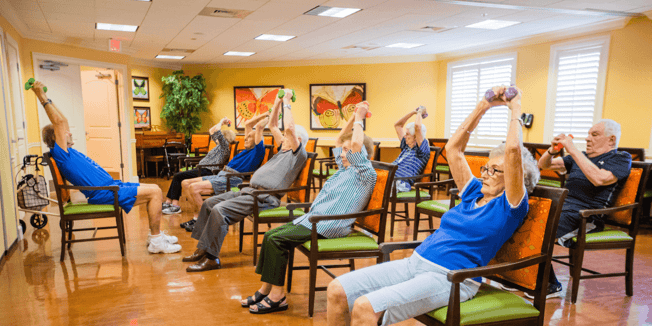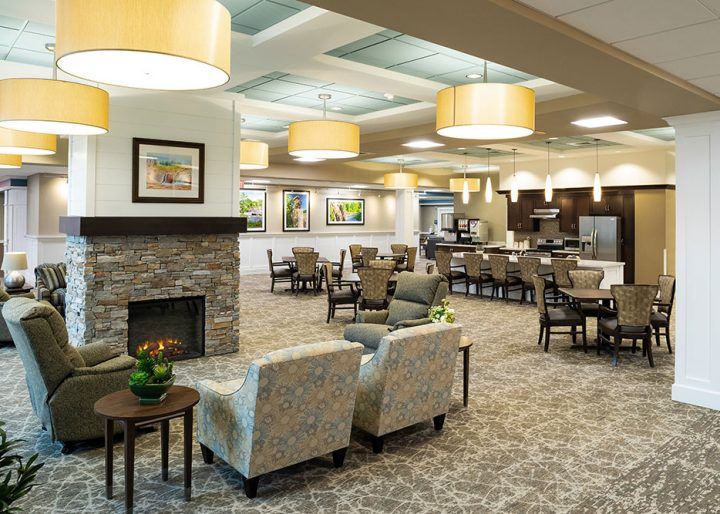Get professional care and comfort with trusted Assisted Living services.
Wiki Article
The Function of Assisted Staying In Offering Specialized Take Care Of Mental Deterioration Patients
The provision of specialized treatment for dementia patients within assisted living facilities is increasingly acknowledged as an important component of effective dementia monitoring. These environments are made to deal with the one-of-a-kind cognitive and psychological obstacles encountered by people with mental deterioration, using tailored assistance that promotes safety and security and well-being. By incorporating structured routines and appealing tasks, helped living can mitigate feelings of isolation while improving general lifestyle. Nevertheless, the efficiency of these programs often depends upon numerous aspects, including personnel training and family involvement, prompting a closer examination of just how these components connect to maximize treatment results.Understanding Dementia Care Needs
Comprehending the treatment requirements of individuals with mental deterioration is crucial for supplying effective support and boosting their top quality of life. Mental deterioration is a modern neurological problem that affects cognitive functions such as memory, reasoning, and communication. Consequently, people with mental deterioration usually require assistance with day-to-day tasks, customized care plans, and emotional support.Efficient mental deterioration care involves recognizing the one-of-a-kind obstacles encountered by each individual. This includes understanding the phases of dementia, which can range from moderate cognitive problems to sophisticated stages calling for detailed aid. Treatment requires might include support in handling day-to-day regimens, drug adherence, and maintaining social interactions to avoid isolation.
Additionally, sensory stimulation and acquainted environments can significantly boost the wellness of people with dementia. Caregivers must be trained to identify behavior changes and employ approaches tailored per person's choices and past experiences. Techniques such as validation therapy and reminiscence can help connect properly and cultivate a feeling of safety and security.
Ultimately, effectively attending to the care demands of individuals with dementia requires a caring technique, continuous training for caregivers, and a dedication to maintaining dignity and regard throughout the caregiving procedure.
Advantages of Assisted Living

One more considerable advantage is the safe and safe environment these facilities supply. Locals profit from functions such as protected entries and monitored typical locations, lowering the threat of wandering and boosting general safety. Assisted living promotes social communication among citizens, promoting a feeling of area and belonging. Involving with peers can reduce feelings of isolation, which prevail in those dealing with mental deterioration.
On top of that, lots of nursing home use aid with day-to-day tasks, such as medicine management, showering, and meal preparation. This assistance allows locals to keep their freedom while guaranteeing their health and wellness are prioritized. Eventually, assisted living works as an important resource, balancing treatment and freedom for people with dementia and their households.

Specialized Programs and Activities
(Dementia Care Charlotte)Identifying the unique requirements of people with dementia, several nursing home implement specialized programs and tasks created to improve cognitive feature and promote total well-being. These programs often include cognitive stimulation tasks that engage citizens in memory video games, puzzles, and memory therapy, which motivates the sharing of individual tales and past experiences.Additionally, art and music therapy play significant duties in cultivating creative thinking and psychological expression (Assisted Living). Engaging homeowners in painting, crafting, or songs sessions can supply restorative advantages, helping to reduce anxiousness and boost mood. Exercises, such as mild you can find out more exercises and dancing sessions, are additionally vital, as they advertise flexibility and physical health and wellness while motivating social interaction amongst homeowners
Organized everyday routines are typically established to supply a feeling of stability and predictability for individuals with dementia. These regimens can consist of arranged meal times, group tasks, and personalized care strategies that accommodate individual passions and capabilities. By creating an improving atmosphere full of customized tasks, assisted living centers not only improve the top quality of life for dementia patients however likewise foster a feeling of neighborhood and belonging.
Educated Staff and Assistance
(Memory Care Charlotte)In aided living facilities, the visibility of trained staff is critical for supplying effective assistance to people with dementia. These professionals possess specialized knowledge and abilities to resolve the distinct needs of locals, guaranteeing their safety, comfort, and wellness. Team member receive training in mental deterioration treatment, that includes comprehending the progression of the disease, identifying behavioral changes, and using effective communication techniques.In addition, trained team are furnished to carry out personalized treatment plans customized to every homeowner's choices and capabilities. This customized method cultivates a sense of freedom and self-respect, permitting homeowners to participate in significant tasks that improve their lifestyle. The personnel additionally play a vital duty in keeping an eye on health and wellness, promptly recognizing any adjustments in condition that might need clinical attention.
Along with direct treatment, skilled personnel give psychological support to citizens, aiding to relieve sensations of complication and stress and anxiety that frequently come with mental deterioration. Their thoughtful strategy produces a caring atmosphere where locals really feel valued and comprehended - Assisted Living. Ultimately, the proficiency and commitment of qualified team are vital in delivering comprehensive care that fulfills the complex requirements of people dealing with mental deterioration in assisted living setups
Family Involvement and Resources
Household participation plays a substantial function in the treatment of individuals with dementia in nursing home. Involving member of the family in the treatment procedure not only boosts the psychological well-being of the local yet also cultivates a collective setting where care plans can be customized to specific requirements. Households can give beneficial understandings into the preferences, background, and actions of their loved ones, which can notify caregivers and bring about more tailored treatment methods.
Furthermore, helped living facilities typically use resources for family members, such as support system and academic workshops. These sources can aid households understand dementia, enhance communication techniques, and create coping systems. Participation in these programs can equip household participants, furnishing them with the tools required to sustain their enjoyed ones effectively.
In addition, regular interaction between households and staff is crucial. This continuous dialogue permits households to stay notified about their loved one's progression and any changes in treatment plans. Ultimately, a solid collaboration in between family members and aided living centers cultivates an atmosphere of trust and understanding, making sure that people with dementia get the specialized care they are worthy of while maintaining their family links.
Conclusion
In final thought, aided living centers play an essential role in addressing the one-of-a-kind requirements of dementia people via customized treatment and support. Inevitably, assisted living provides necessary sources that dramatically improve the high quality of life for those living with mental deterioration.Report this wiki page